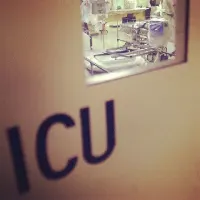National Public Radio visits a tele-ICU in North Carolina in the United States in this blog piece and podcast. While health professionals are on site, care is also provided by nurses and doctors working in the Carolinas Healthcare System tele-ICU, a command centre that monitors ICUs in 10 of the group’s hospitals.
Doctors and nurses working at the command centre discuss the advantages for patient care and the benefits of working in a quieter environment, without the alerts and alarms of an actual ICU.
ICU mortality is down 5 percent and length of stay is down 6 percent in the 10 hospitals, although the director Dr. Scott Lindblom says virtual care is just one factor, as the hospitals also have a sepsis management programme.
The last word goes to an ICU patient, Richard Gilbert, who says the more people looking after him, the better.
"That's sort of like me and farming," Gilbert says. "If I've got a five-man job, and I go out there with two people, [I] might miss something." But if you have your whole crew working, he says, "you don't miss anything. You get it done.
Also available as audio (4:11 minutes) at http://www.npr.org/blogs/health/2015/05/06/402556818/staffing-an-intensive-care-unit-from-miles-away-has-advantages
Source: NPR
Image credit: Kevin McCarthy/Carolinas HealthCare System
Latest Articles
ICU, Tele-ICU
Interview with staff and patients at a virtual or tele-icu










